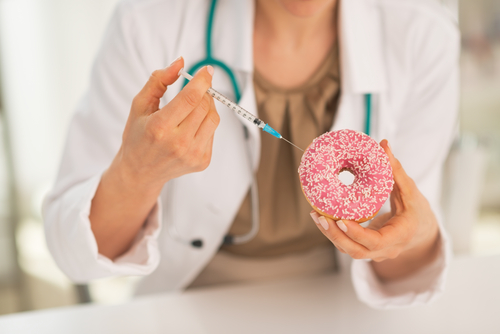You don’t need to be a diabetic to understand what a sugar craving is. How many times were you reading a book or watching a movie when a sudden desire for something sweet rushed through your brain?
Throughout my life as a diabetic I have felt sudden urges to just eat sweets without ever understanding why. I remember being a child and trying to sneak, late at night, into the storage room where my parents used to keep all the cookies and candy bars. I would go there, peek at some of the marvelous options, and hope my parents didn’t notice my disruptive behavior. I would then go back to my room, full of joy — and guilt. The practical results of these small “victories” were usually checked in my regular doctor’s appointment when I faced strange trends of high glycemia levels before breakfast.
Now the scientific community is finally paying attention to these behaviors, and new studies are emerging on why they happen. In August 2015 a new research study was published that sought to understand the relationship between food cravings as mediators of addictive-like eating habits. In this research, scientists proved that cravings had a significant relevance in the pathway of addictive-like eating habits and, furthermore, future problematic eating outcomes. Personally, this seems to be a quite logical result considering that many obesity cases start with eating urges and behaviors.
Another research group is finally starting to understand the pathway responsible for these urges. FGF21 is the first liver-derived hormone responsible for glucose intake. Using a mouse model, scientists verified that the overexpression of this hormone reduced glucose intake. According to the same authors, this hormone’s influence is set through the neurons in the brain’s hypothalamus. Briefly, cravings seem to be a bodily response toward the need to intake those molecules. You can read more about this in the article “Diabetics Sugar Cravings May Have an On-Off Switch.”
So far, there is no miraculous cure for food cravings, but a better understanding toward this specific biological reaction is beginning to emerge. In the meantime, as diabetic patients, it is up to us to make the best nutritional decisions possible. To do so, I would recommend reading my previous post, “Carbs, Glucose & What You Need to Know About a Type 1 Diabetes Diet.”


